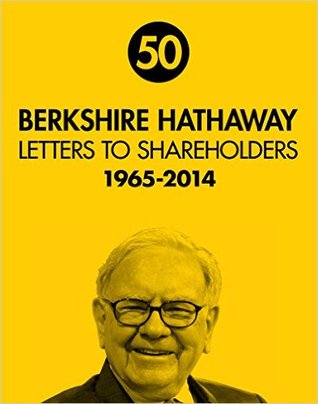When we use incentives — and these can be large — they are always tied to the operating results for which a given CEO has authority. We issue no lottery tickets that carry payoffs unrelated to business performance. If a CEO bats .300, he gets paid for being a .300 hitter, even if circumstances outside of his control cause Berkshire to perform poorly. And if he bats .150, he doesn’t get a payoff just because the successes of others have enabled Berkshire to prosper mightily. An example: We now own $61 billion of equities at Berkshire, whose value can easily rise or fall by 10% in a given year.
...more
Welcome back. Just a moment while we sign you in to your Goodreads account.


